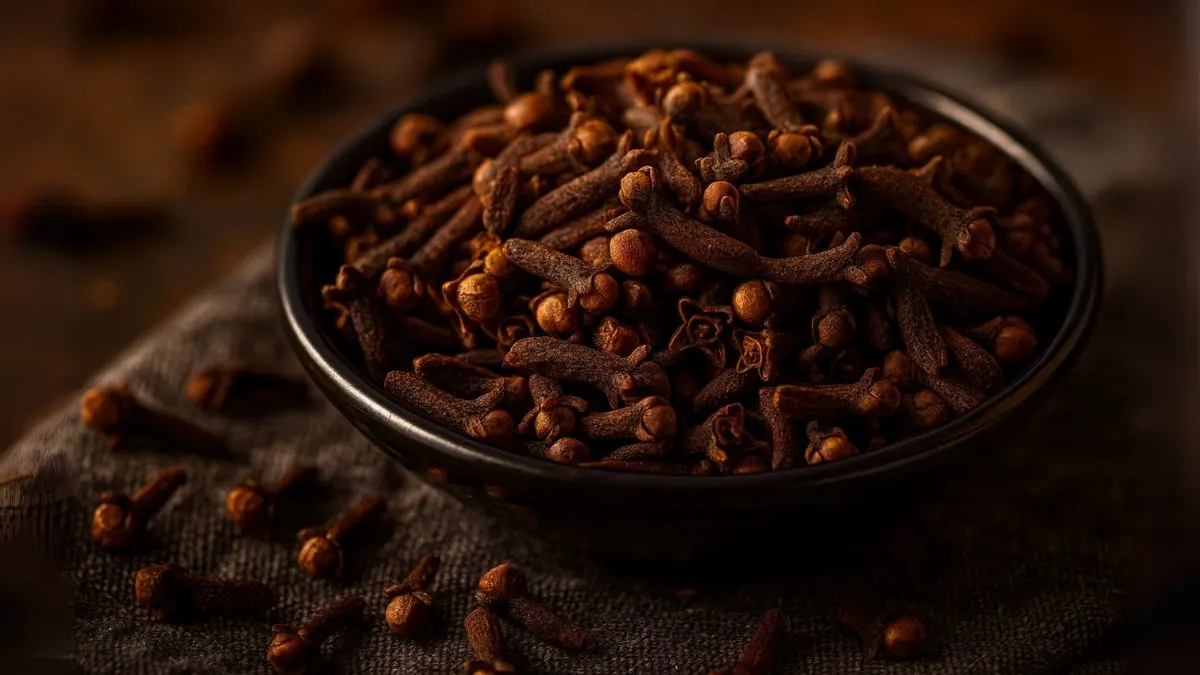This experiment began with practicality: a tiny tin of whole cloves slips into any pocket, doesn’t spoil, and is ready after meals. Fourteen days later, the effects were tangible—especially in the mouth—and much of what I felt maps neatly to what’s known about clove’s lead compound, eugenol. It’s long been used in dentistry for comfort and cleanliness, and it explains a lot of the experience.
What I Noticed In Two Weeks

1. Oral Freshness Arrived Fast
By day 2–3, post‑meal breath had a clean finish. Instead of mints, I’d gently chew one clove to release aroma and park it near the gums for a few minutes. That “freshen breath” effect tracks with clove’s antimicrobial activity: its compounds can help “fight cavity bacteria” implicated in plaque, which supports a cleaner mouthfeel after eating. The quick, mild numbing I felt is also expected—“eugenol” has local analgesic properties, explaining why it delivers targeted comfort when placed near tender spots.
2. Calmer Gum Sensitivity
No miracles—but the dull ache that sometimes followed flossing eased. That aligns with eugenol’s antibacterial, anti‑inflammatory, and analgesic profile, which is why clove derivatives show up in dental settings for temporary comfort. Important: cloves support, not replace, dental care. Persistent pain or swelling deserves a professional exam.

3. Beyond The Mouth: Antioxidants and Possible Metabolic Support
“Cloves are packed with medicinal properties.” They’re notably rich in polyphenols and eugenol, with robust “antioxidants” that help buffer oxidative stress in experimental models. Early animal research also hints that clove extracts or oils may “Help regulate blood sugar” by modulating enzymes and improving oxidative markers. I didn’t track glucose, but energy felt steadier after carb‑heavy meals—a subjective nudge that’s consistent with the emerging data.
Also Read: Pine Needles in the Garden – From Yard Waste to Garden Treasure
Why It Works
- The numbing effect: Eugenol acts as a topical anesthetic and anti‑inflammatory, hence the quick, localized comfort near sore teeth or gums.
- The cleaner finish: Clove’s antimicrobial compounds hamper certain oral bacteria tied to plaque, which helps explain fresher post‑meal breath.
- The “protective” angle: Strong antioxidant capacity can help buffer oxidative stress; preclinical work suggests potential glucose‑regulating effects—but human trials are still needed.
- Safety in context: Whole culinary cloves are gentle. Concentrated essential oils or high eugenol doses can irritate tissues and, rarely, impact the liver—dilution, moderation, and professional guidance matter, especially for sensitive groups.
How I Used Whole Cloves
- After meals: One whole clove, 2–3 times daily. Lightly chew to release aroma, then set it near the target area for 2–5 minutes.
- Oral hygiene: This complements brushing, flossing, and checkups—it doesn’t replace them.
- Sensitivity check: If gums feel irritated, reduce frequency or stop. Whole spice is friendlier than undiluted essential oil on mucosa.
- Medical caveat: Tooth pain can signal decay or infection. Use cloves for short‑term comfort and see a dentist promptly when needed.
Claims vs. What I Felt
- Freshen breath; fight cavity bacteria: Noticeable within days; supported by antimicrobial action against key oral microbes.
- Relieve toothaches and gum pain: Mild numbing and ease consistent with eugenol’s analgesic/antibacterial role.
- High in antioxidants: Not directly “felt,” but well backed by lab studies on oxidative stress.
- Help regulate blood sugar: Subjectively steadier energy; early animal data is encouraging, but human confirmation is needed.
Also Read: Bull Thistle: The Spiky Weed with Surprising Health Benefits
How To Start (Step‑By‑Step)
- Begin small: Try one clove after a meal. The taste is warm, aromatic, and spicy.
- Targeted use: Gently chew and hold near the tender gum or tooth—Chewing cloves this way releases “eugenol” right where it’s needed.
- Keep contact brief: 2–5 minutes is plenty to extract aroma and gain comfort.
- Maintain routine care: Brush, floss, and rinse as usual; schedule regular cleanings.
- Considering oil? If you explore clove oil, dilute well and use sparingly. Avoid undiluted applications; consult a dentist first if you have lesions, are pregnant, or take medications.
Small Rituals That Help
- After‑meal finisher: One clove, then a warm water rinse.
- Synergy sips: Pair with green tea or a cinnamon stick tea for an antioxidant‑rich ritual—moderation always.
- Always-ready kit: A tiny tin of whole cloves is shelf‑stable and travel‑friendly for months.
Who Might Benefit
- Anyone wanting a portable, natural breath freshener post‑meal.
- Those with occasional gum sensitivity who want a gentle complement to daily care.
- Curious wellness tinkerers who like low‑risk, culinary‑grade experiments.
Who Should Be Cautious
- Anyone allergic to clove or “eugenol.”
- People with active oral lesions, bleeding disorders, or on anticoagulants—seek clinical guidance first.
- Infants and young children—avoid essential oils; whole spices can be a choking hazard.
Also Read: Wild Lettuce: Nature’s Calm Healer and Wart Fighter
FAQ (Fast Answers)
- Can I swallow the clove? It’s culinary, but most people discard after extracting flavor.
- Oil vs. whole spice? Oil is stronger—dilute and be cautious. Whole spice is the gentlest start.
- How quickly might I notice changes? Breath freshness can show in a couple of days; gum comfort varies.
- Can this replace the dentist? No. Think of cloves as supportive—not a substitute for exams or treatments.
Small Spice, Big Potential
Two weeks with whole cloves convinced me to keep them in the daily routine. The mouth benefits felt real—cleaner breath, calmer gums, quick, localized comfort—and they align with what’s known about “eugenol” and clove’s antimicrobial and analgesic properties. Beyond oral care, the antioxidant profile is compelling, and early metabolic findings are promising enough to merit future human research. In short, “Cloves are packed with medicinal properties”—used wisely, they can support everyday wellness, especially for the mouth.






